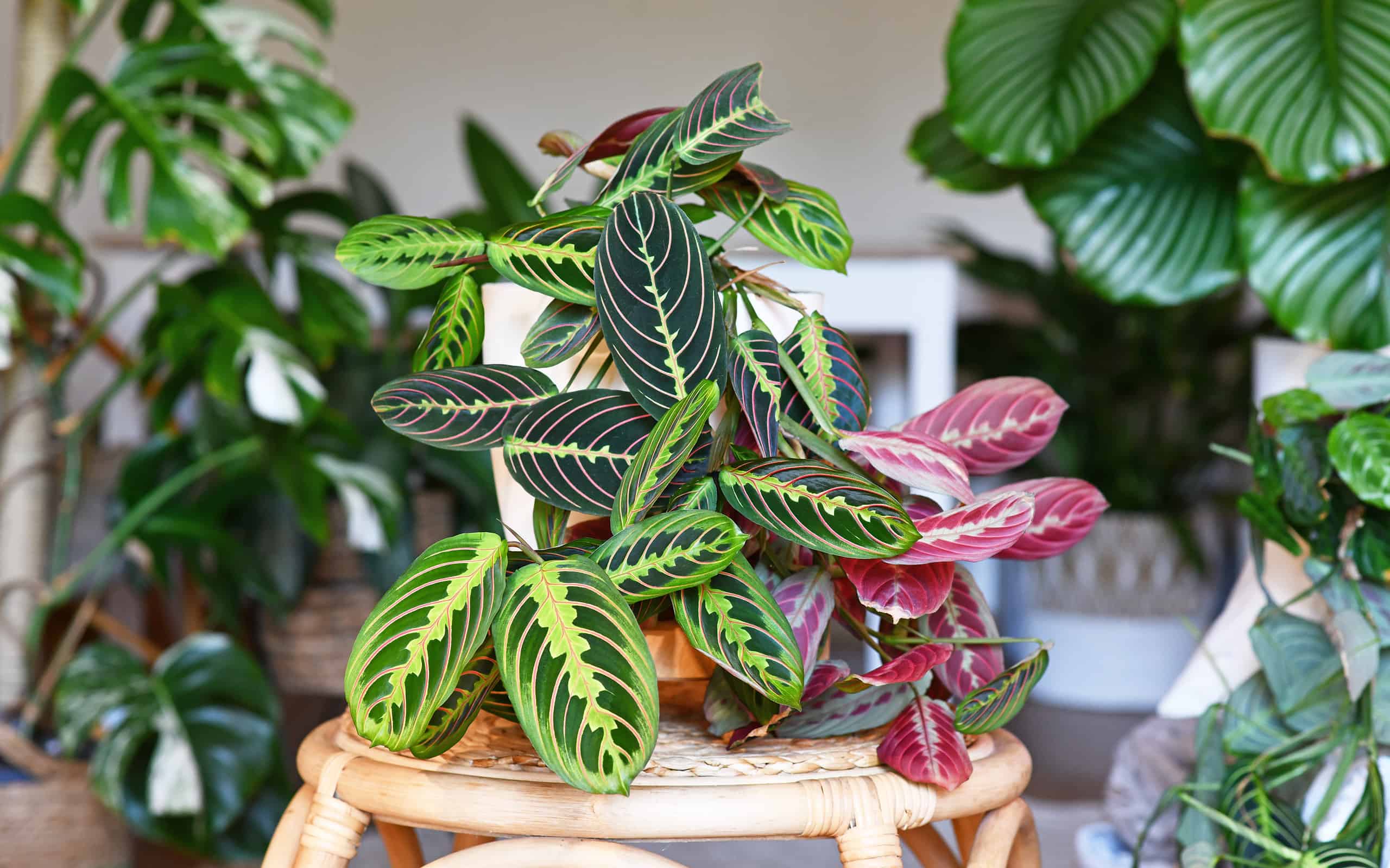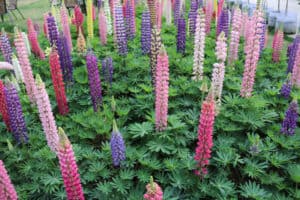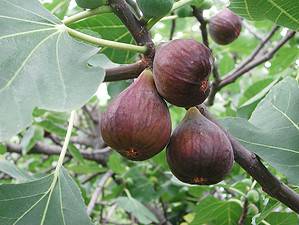Picture this: You stroll into your favorite plant store, and there it is – a lush, vibrant houseplant that seems to call out to you. The temptation is real. But before you whip out your wallet, take a moment to pause and consider the consequences of impulse buying that new leafy friend.
Impulse buying, whether it’s that irresistible monstera or a cute succulent, can lead to some not-so-green outcomes. In this article, we’ll look at why you should think twice before bringing home that impulse purchase.
1. Lack of Research
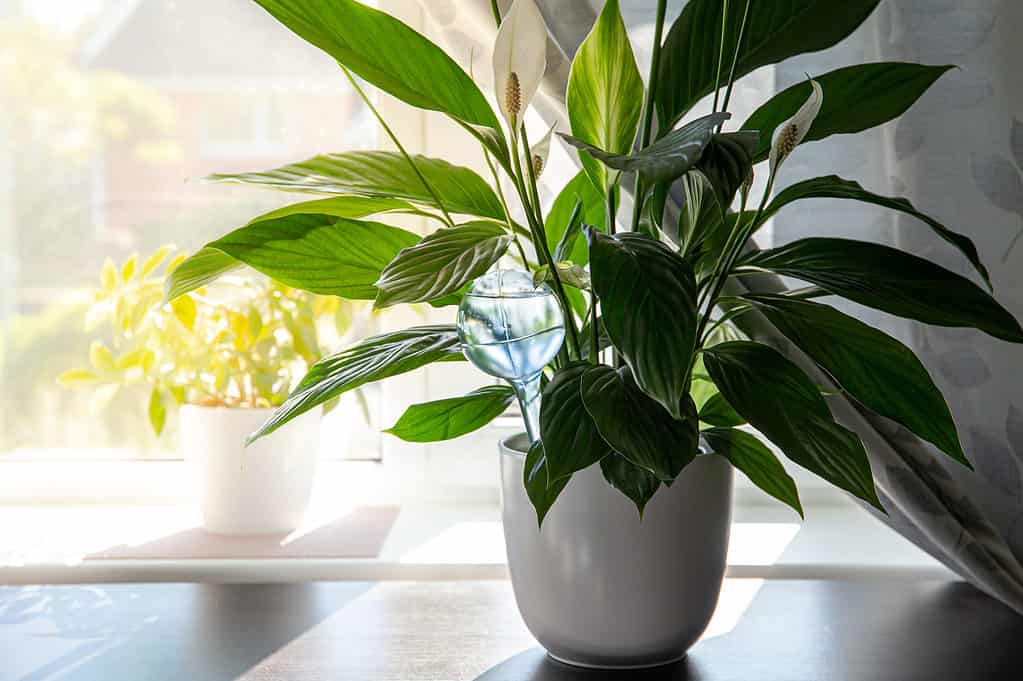
Certain houseplants like peace lilies (pictured) can be toxic to humans as well as pets, so researching houseplants ahead of time is vital.
©iStock.com/Helin Loik-Tomson
Impulse buying a new houseplant can be tempting, but it’s important to resist the urge and conduct proper research before adding a new green companion to your home. A lack of research can lead to several potential issues.
Firstly, different houseplants have varying care requirements, including sunlight, water, and humidity levels. Purchasing a plant without knowing its specific needs can result in poor growth or even its untimely demise.
Secondly, some houseplants may be toxic to pets or children if ingested. Without proper research, you might unknowingly bring a hazardous plant into your home, putting your loved ones at risk.
Furthermore, not all houseplants thrive in the same environment. Factors like temperature, humidity, and air circulation play a crucial role in their well-being. Without researching these factors, you may choose a plant ill-suited to your home’s conditions, leading to frustration and disappointment.
Lastly, impulse buying can lead to overspending. Houseplants come in various price ranges, and without prior knowledge, you might purchase an expensive plant that doesn’t align with your budget or expectations.
2. Overcrowding
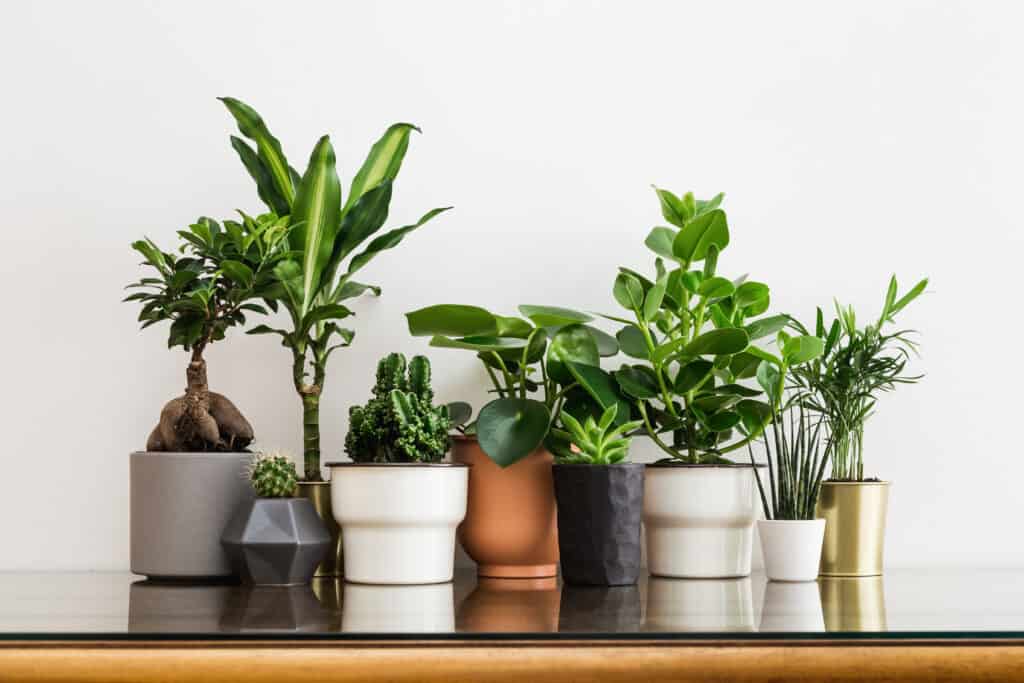
Collecting houseplants might be fun, but overcrowding can cause problems for all of your plants over time.
©Mallmo/Shutterstock.com
Impulse buying a new houseplant might seem like a quick and exciting idea, but it’s crucial to consider the potential issue of overcrowding in your living space. Overcrowding occurs when you accumulate too many plants without proper planning, and it can lead to various problems.
Firstly, overcrowding can result in a lack of space and adequate light for your existing plants. Houseplants need space to grow and access to sufficient sunlight for photosynthesis. When you add new plants impulsively, they can end up competing for these essential resources, causing stunted growth and weakened health for all your plants.
Secondly, overcrowding makes it challenging to maintain proper care for each plant. Watering, fertilizing, and monitoring for pests or diseases become more difficult when you have numerous plants clustered together. This can lead to neglect and, ultimately, the decline of your plant collection.
Furthermore, overcrowding can negatively impact the aesthetics of your living space. Too many plants in a confined area can make it look cluttered and chaotic rather than serene and inviting.
Lastly, overcrowding can be costly. It might lead to unnecessary plant purchases as you try to fill every available spot. It’s essential to plan your plant acquisitions thoughtfully to avoid overspending. Don’t be a hoarder!
3. Incompatible Environment
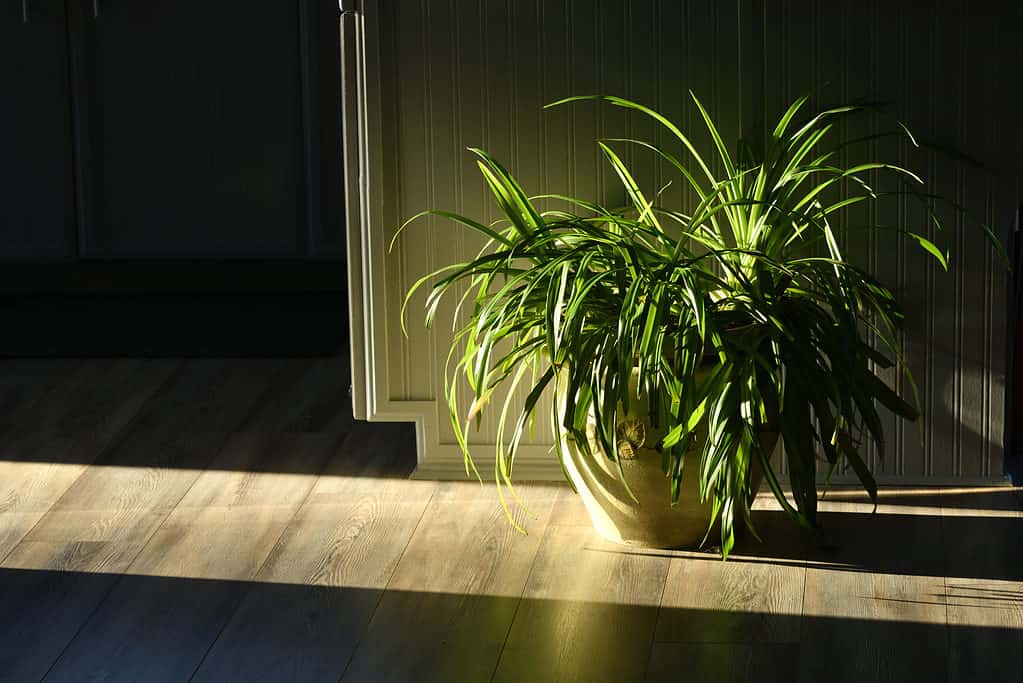
Homes that don’t have enough natural sunlight or are kept at a low or high temperature might be incompatible with certain plants.
©iStock.com/Greenseas
Resisting the urge to impulse buy a new houseplant is essential because it helps avoid the common pitfall of choosing a plant that’s incompatible with your living environment. Your home has specific conditions that can either support or harm a plant’s growth and neglecting this crucial factor can lead to disappointment.
One of the primary environmental factors to consider is light. Different houseplants have varying light requirements, such as low, medium, or bright indirect light. Impulsively buying a plant without assessing your home’s available light can result in a mismatch, leading to poor growth or the plant’s eventual demise.
Temperature and humidity levels also play a pivotal role. Some houseplants thrive in warm, tropical conditions, while others prefer cooler, drier environments. Failing to consider these factors may lead to a plant’s discomfort or inability to thrive.
Moreover, your available space matters. Some plants can grow tall and wide, while others are more compact. Purchasing a large plant for a small living space or vice versa can disrupt the harmony of your home and make it challenging to accommodate the plant properly.
Lastly, impulse buying can be expensive. Incompatibility issues may require you to invest in additional equipment like grow lights or humidifiers to create a suitable environment for your new plant, adding unexpected costs to your hobby.
4. Maintenance Commitment
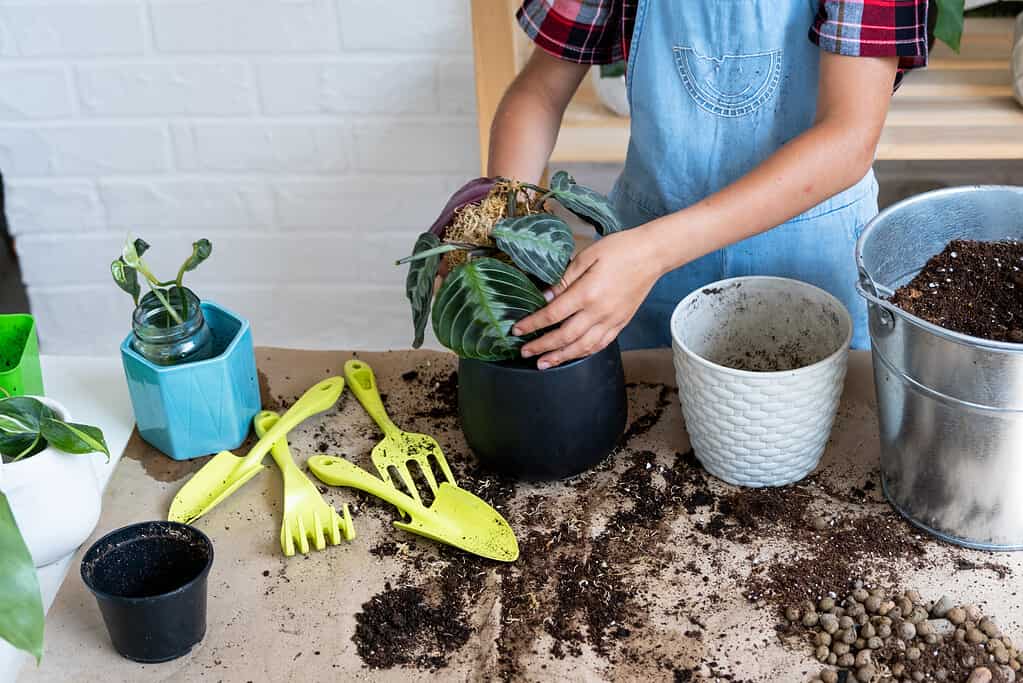
Caring for multiple houseplants can take a lot of work and time if you don’t want them to wither away and die. An excessive number of houseplants could take up a significant amount of time and require a lot of scheduling and maintenance.
©Ольга Симонова/iStock via Getty Images
Resisting the temptation to impulse buy a new houseplant is crucial because it involves a significant commitment in terms of maintenance. Owning a plant is more than just adding a decorative element to your home; it requires consistent care and attention.
Houseplants have specific care needs, which can include regular watering, proper fertilization, and maintaining the right environmental conditions. Impulse buying without understanding these requirements can lead to a lack of commitment to caring for the plant. Neglecting a plant’s needs can result in its decline, and ultimately, its demise.
Moreover, houseplants often require routine monitoring for pests, diseases, and signs of stress. Ignoring these aspects can lead to infestations or illnesses that not only harm the new plant but can also spread to your existing plant collection.
Time is another critical factor. Impulse buying a new houseplant means taking on the responsibility of incorporating its care into your daily routine. Failing to do so can result in stress and guilt when the plant starts showing signs of distress.
Just as well, different plants have different lifespans, and some can live for several years or even decades. Impulsively bringing a plant into your home without considering the long-term commitment can lead to difficulties when you realize you’re not prepared for the duration of care required.
5. Costs
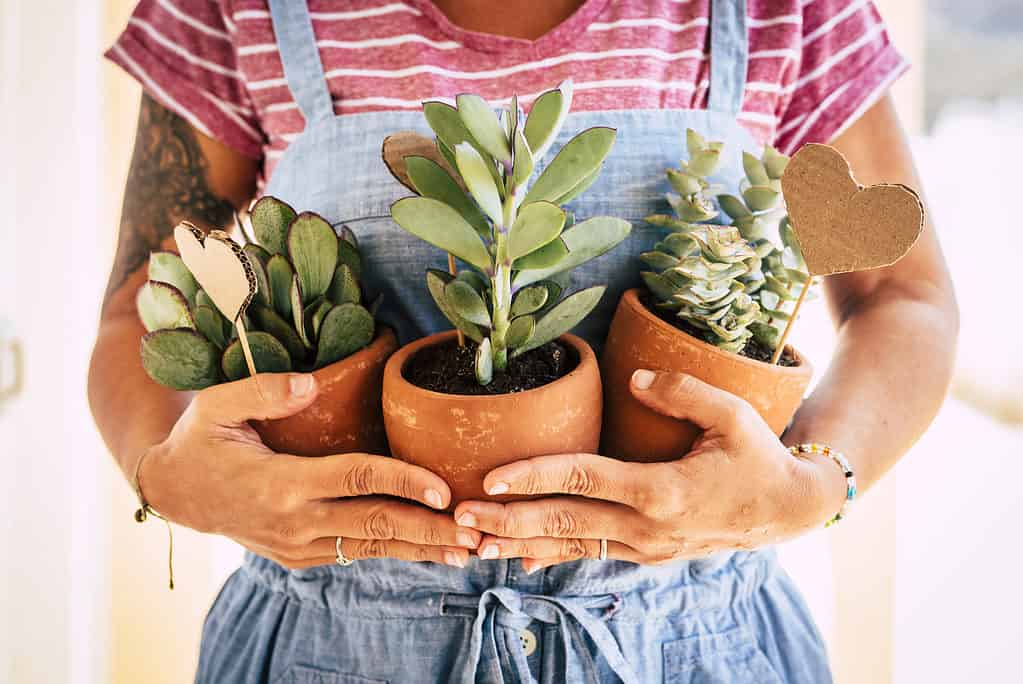
While you can find houseplants for free or at a low cost through online marketplaces and social media, most garden centers and nurseries charge a pretty penny for high-quality plants.
©iStock.com/simonapilolla
Impulse buying a new houseplant might seem like a harmless indulgence, but it’s crucial to consider the potential costs involved. Houseplants come with financial responsibilities that go beyond their initial price tag.
Firstly, the purchase price of a plant is just the beginning. Each plant requires ongoing care, which includes investing in suitable pots, soil, fertilizers, and various maintenance supplies. Neglecting these essential items can lead to poor plant health and limited growth potential.
Furthermore, different plants have specific care needs, and providing the right environment might require additional expenses. For example, some plants thrive with supplemental lighting, which may necessitate the purchase of grow lights. Others may require humidifiers to maintain the proper humidity levels. Failing to meet these requirements can result in a disappointing plant experience and, potentially, the loss of your investment.
Pest control is another aspect that can incur unexpected costs. Without proper care and monitoring, houseplants can fall prey to pests that may require treatments or even professional intervention, adding to your financial burden.
Moreover, the more plants you accumulate through impulse buying, the more you may spend on maintenance and care supplies. This can lead to overspending and financial strain if not managed wisely.
6. Overall Plant Health
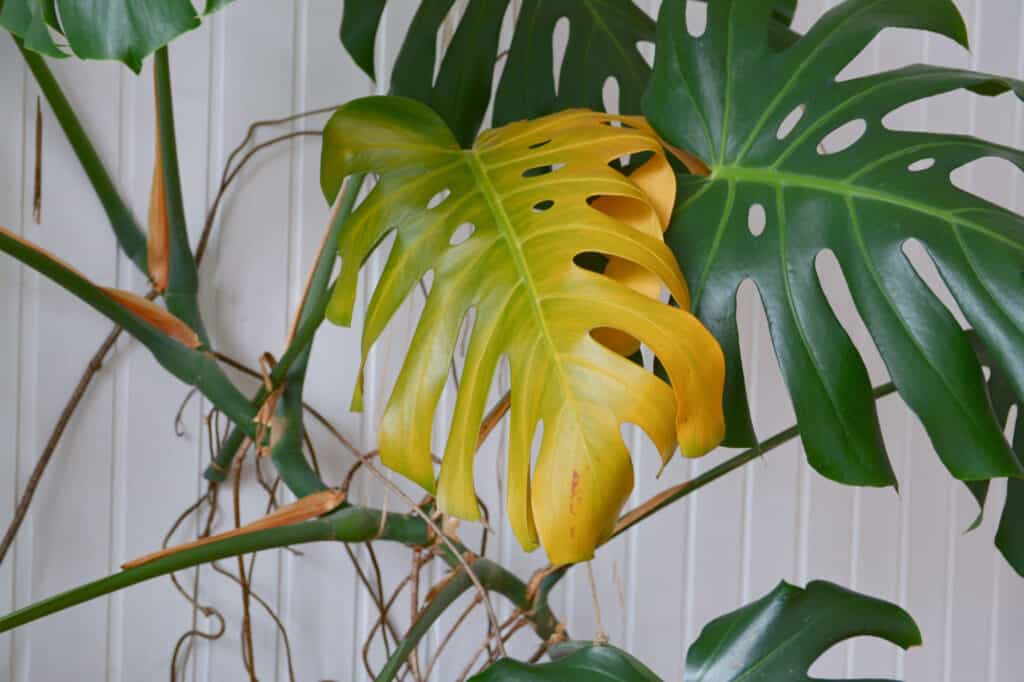
The health of your beautiful (and expensive) houseplants could decline if you take on more plants than you can handle in an incompatible space, especially if disease or pests begin to quickly spread from plant to plant.
©Chodimeafotime/Shutterstock.com
Resisting the urge to impulse buy a new houseplant is essential for the overall health of your plant collection. Adding a new plant without proper consideration can have negative consequences for the well-being of all your plants.
Firstly, different plants have varying care requirements, such as sunlight, watering frequency, and humidity levels. Impulse buying a plant without researching its specific needs can disrupt the established care routines of your existing plants. This can lead to stress and adverse effects on their overall health.
Secondly, houseplants are susceptible to pests and diseases. Introducing a new plant without thoroughly inspecting it for pests or quarantining it can expose your entire collection to potential infestations. Neglecting this precaution can lead to extensive damage and the need for time-consuming treatments.
Also, overcrowding can result from impulsive purchases. When plants are too close together, they can compete for resources, including light and nutrients. This competition can lead to stunted growth and overall reduced plant health.
Neglect is another concern. Impulse-bought plants may not receive the attention and care they require, leading to their deterioration and potentially spreading issues to other plants.
Lastly, sudden changes in your plant environment, such as introducing a new plant with different care needs, can disrupt the stable conditions your existing plants have adapted to. This can cause stress and weaken their overall resilience.
7. Limited Space
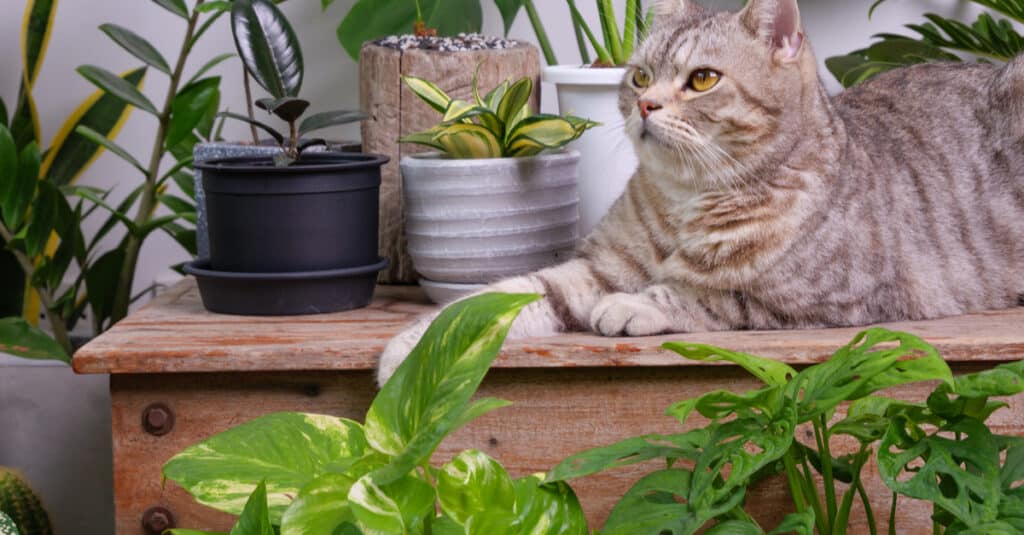
A collection of impulse-bought houseplants can grow pretty fast, and they could take up space in your home and lead to clutter.
©Foto2rich/Shutterstock.com
Resisting the temptation to make impulsive purchases of new houseplants is crucial, primarily due to the potential issue of limited space. Adding a new plant without proper consideration of your available space can lead to various challenges.
First and foremost, houseplants require physical room to grow and thrive. Each plant has specific space requirements for its roots to expand, and impulsive buying can lead to overcrowding. Overcrowding hinders proper air circulation and light penetration, potentially causing plants to compete for resources and leading to stunted growth or other health issues.
Moreover, placing plants too close together can make it challenging to access and care for each one individually. Watering, pruning, and monitoring for pests become more cumbersome in a crowded environment, which can result in neglect and decreased overall plant health.
Limited space can also affect the aesthetic appeal of your indoor garden. An overcrowded space may appear cluttered and disorganized, detracting from the visual appeal of your plants and home decor.
Additionally, when you impulsively buy houseplants without considering your available space, you may find yourself struggling to find suitable locations for each plant. This can lead to plants being placed in less-than-ideal spots, where they may not receive the proper amount of light or ventilation, affecting their well-being.
8. Environmental Impact
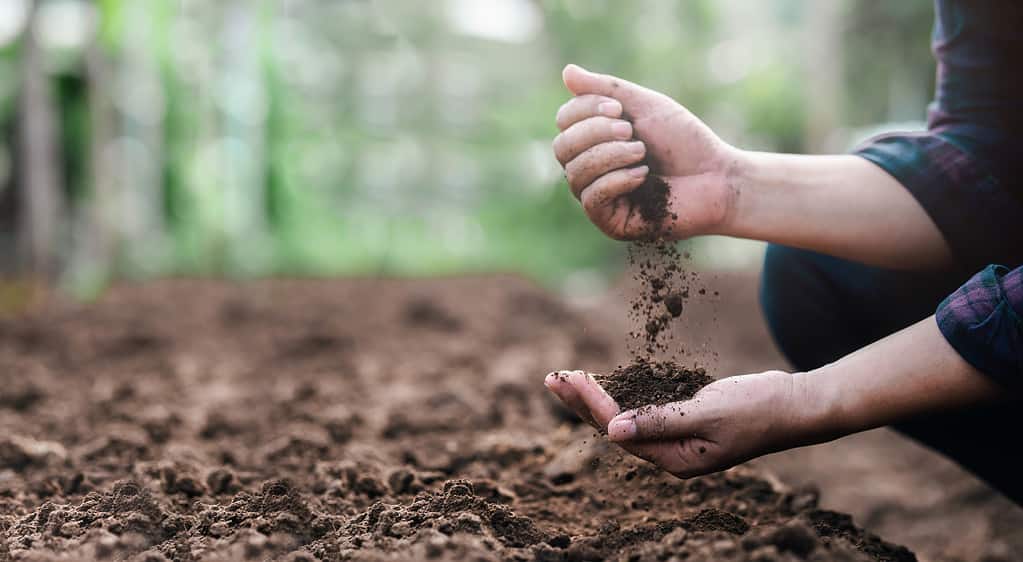
Just because your houseplants are kept indoors doesn’t mean that they aren’t negatively impacting the outside environment. Namely, an excessive amount of houseplants can lead to water wastage in some cases.
©Sakorn Sukkasemsakorn/iStock via Getty Images
Avoiding impulsive houseplant purchases is vital when considering the broader environmental impact. While houseplants can be a beautiful addition to your home, their production and maintenance can have consequences for the planet.
Firstly, the production of houseplants often involves extensive energy use and resource consumption. Nurseries and greenhouses require electricity for lighting, heating, and climate control, contributing to greenhouse gas emissions. Additionally, the use of plastic pots, pesticides, and fertilizers in plant cultivation can generate waste and chemical pollution.
Furthermore, transporting houseplants from their place of origin to your local store involves fuel consumption and emissions. Impulse buying contributes to the demand for rapid turnover, leading to more frequent shipping and, consequently, increased environmental impact.
Maintenance plays a significant role too. Overwatering, excessive use of fertilizers, and the disposal of dead or unhealthy plants can have adverse effects. Water wastage is a concern, especially in regions facing water scarcity, and excess fertilizers can leach into water bodies, causing ecological harm.
Another aspect to consider is the potential spread of pests and diseases from newly acquired plants. Impulse purchases without proper inspection can lead to the introduction of harmful pests into your home or outdoor garden, potentially affecting local ecosystems if the plants are later discarded.
9. Unrealistic Expectations
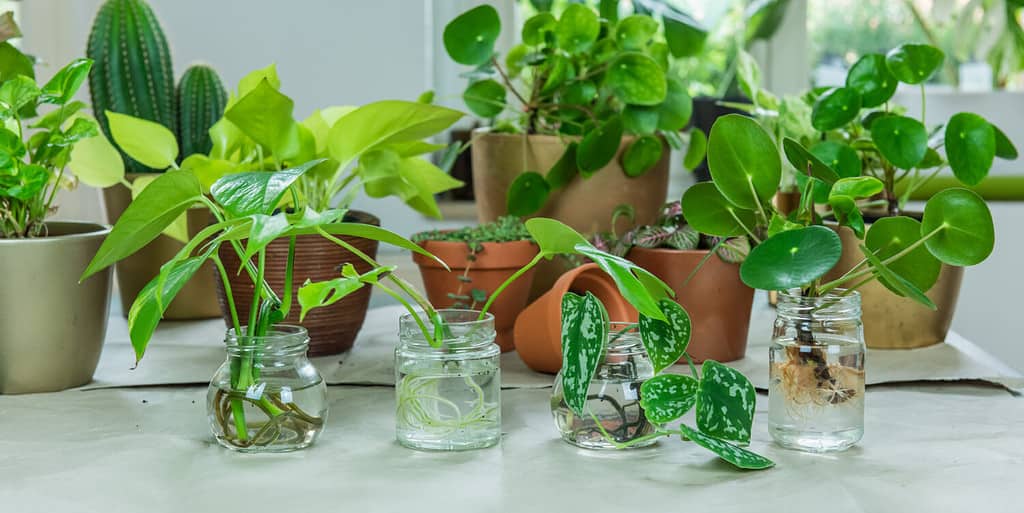
Having a ton of houseplants doesn’t necessarily make a home look more aesthetically pleasing. Having too many impulse-bought houseplants could lead to your space looking less like an Instagram-worthy home and more like a cluttered mess.
©denise1203/Shutterstock.com
Avoiding impulsive houseplant purchases is essential to prevent unrealistic expectations. Often, people impulsively buy houseplants without fully understanding the responsibilities and challenges that come with plant ownership.
Unrealistic expectations can lead to disappointment and frustration. Impulse buyers may anticipate a low-maintenance experience, assuming that houseplants require minimal care. However, different plants have varying needs for light, water, and humidity. Without proper research, you might expect your new plant to thrive in conditions it can’t tolerate, resulting in disappointment when it doesn’t flourish.
Also, the pace of growth can be misleading. Some houseplants may take years to reach their full potential, while others might grow quickly. Impulse buyers may have unrealistic expectations about how fast their plants will grow and become discouraged if they don’t see immediate results.
Expecting perfect health is another common misconception. Houseplants can face issues like yellowing leaves, pests, or occasional shedding. Impulse buyers may assume their plants will always look flawless and become disheartened when they encounter these common challenges.
It’s also worth noting that your overall aesthetic vision can be misunderstood. People might impulsively buy plants based on how they look at the moment without considering how they’ll fit into their home decor over time. This can lead to clashes with your interior design and overall dissatisfaction.
Summary of Reasons to NOT Impulse Buy a New Houseplant
| # | Reason |
|---|---|
| 1 | Lack of Research |
| 2 | Overcrowding |
| 3 | Incompatible Environment |
| 4 | Maintenance Commitment |
| 5 | Costs |
| 6 | Overall Plant Health |
| 7 | Limited Space |
| 8 | Environmental Impact |
| 9 | Unrealistic Expectations |
Thank you for reading! Have some feedback for us? Contact the AZ Animals editorial team.

